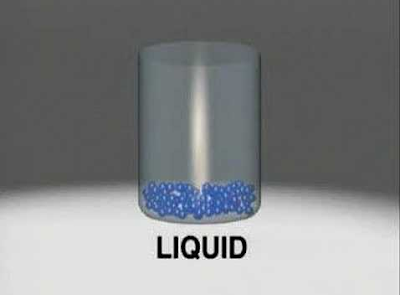Physical properties of Liquid
(1) Additive Property
When a property of a substance is equal to the
sum of the
Corresponding properties of the constituent
atoms, it is called an additive property. For example, molecular mass of a compound is given by the sum of the atomic masses of the constituent atoms.
(2) Constitutive Property
A property that depends on the arrangement of atoms
and bond structure, in a molecule, is referred to as a constitutive property. Surface tension and viscosity and optical
activity are examples of constitutive property.
(3) Additive and Constitutive Property
An additive property which also depends on the intermolecular
structure is called additive and constitutive property. Surface tension and
viscosity are such properties.
(4) COLLIGATIVE PROPERTIES
Colligative Properties (Greek colligatus = Collected together).
A colligative property may be defined as one
which depends on the number of particles in solution and not in any way on the size
or chemical nature of the particles.
(1) Lowering of the Vapour Pressure
(2) Elevation of the Boiling Point
(3) Depression of the Freezing Point
(4) Osmotic Pressure



Help ful
ReplyDelete